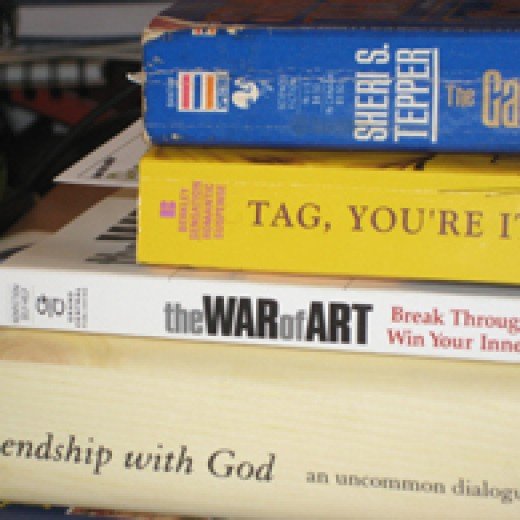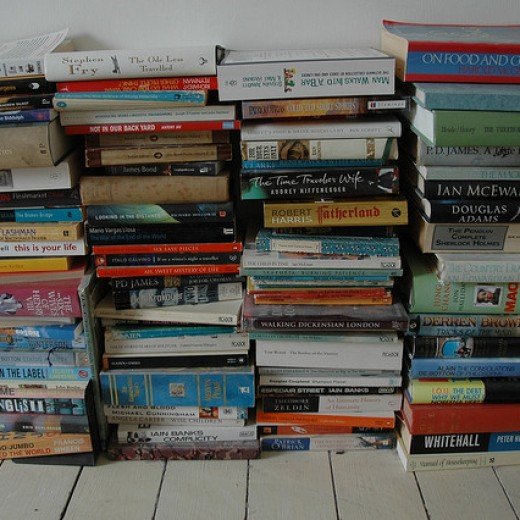Roleplaying the Protagonist by Wyatt Bessing
 Welcome back to another one of Writer’s Fun Zone’s monthly columnists: Wyatt Bessing. A writing coach and teacher, author, Wyatt Bessing shares his fun take on games, play, and how they help our writing. This month Wyatt helps us develop the backstory by roleplaying the protagonist. Enjoy!
Welcome back to another one of Writer’s Fun Zone’s monthly columnists: Wyatt Bessing. A writing coach and teacher, author, Wyatt Bessing shares his fun take on games, play, and how they help our writing. This month Wyatt helps us develop the backstory by roleplaying the protagonist. Enjoy!
***
You are going to interview your protagonist about an incident in his or her backstory. What happened in the past that may have shaped the way your main character deals with the present? As always, you will need a couple of dice for this exercise. If the number you rolled doesn’t make sense in the context of your story, feel free to change it or choose your own scenario.
Step One: The Incident
First, you’ll need to know what happened to your main character. To find out, roll two dice and consult this chart:
2: Witnessed a kidnapping
3: Witnessed a wildfire
4: A friend called him/her for help
5: Witnessed a cat stuck up a tree
6: Received reports of a peeping tom in his/her neighborhood
7: In a crowded plaza, hears a woman yelling about a purse snatcher
8: A burglar broke into his/her house
9: He/she found a valuable treasure
10: He/she witnessed an automobile accident
11: He/she gave money to support a cause
12: He/she is being sued for something
Step Two: The Interview Setup
Where will the interview take place? Again, grab your dice.
2: In prison
3: In a cave
4: At the protagonist’s house
5: On a movie set
6: At a coffee shop
7: In a forest
8: On an airplane
9: At an art show/event
10: In a bookstore
11: At the scene of the incident
12: By phone/internet
I roll my dice on the above tables. A 10 and a 7…. My character witnessed an auto accident and the interview takes place in the forest. Interesting, since my protagonist is a former filmmaker turned professor in trouble for improper relations with a student. This gives me a good background idea.
Write ten questions to ask your character. Remember to use all those good journalistic queries, all the “W Questions:” Who, What, Where, When, Why, and How.
Step Three: Conducting the Interview
Now, think of how the character reacts to the interview. Put his/her emotions into action. Will he/she be defensive, evasive, even angry? Fully imagine the setting of the interview, using all of your senses – taste, smell, sight, touch, and sound (especially sound!).
You will now act out the interview. Read your questions and act out your character’s answers aloud as he/she would, using body language and putting yourself into the scene. You are creating an embodied moment, discovering some of the hidden tics and mannerisms of your character as well as his/her backstory.
This is my interview:
Q: Who were you with on the night of the accident?
Stanley stares fixedly into my eyes, then clinks the ice in his highball glass.
“A student, Marisa Montenez,” he answers finally.
Q: What was the nature of your relationship with her?
Stanley peers down his nose at me, sniffing. “She was a student. I was mentoring her as she undertook some filmmaking about gang life.”
Q: Why didn’t you race to the scene of the crash when you saw it?
His eyes shift, and he stares up at the ceiling before answering. “I thought someone should stay with the car. And I saw that it was being taken care of.”
Q: What did you do when Marisa ran out to help the victims?
He looks at me and scratches his nose, frowning. “I stayed with the car, and I was there in case she needed help. She was really amazing out there.”
Q: Where were you going when the crash occurred?
“We were looking for documentary subjects, gang activities.”
Q: How did the accident happen?
Stanley opens the curtains and slides open the window over our table to gaze out across the redwood grove. The fresh scent of the air seems to invigorate him as he answers, “We heard shots, saw these cars barreling down the street. One of them hit the median and rolled into the other.”
Q: When did you start going out on the film shoots with her?
“A few months into class. I saw that she was really talented and wanted to help her polish her stuff.”
Q: Were you worried about her getting hurt?
He twirls his napkin a little in his fingers. “Yes. That was the reason I was out with her.”
Q: Why did you want to stay hidden from the media?
“Well, I thought she deserved the attention. She was the hero, and she doesn’t need me meddling in her film career.”
Q: What about your own? Were you worried that being seen with a young, attractive student might affect your filmmaking or teaching career?
“Not at all.” At that point, Stanley abruptly excuses himself, saying he has a lunch appointment in the lounge.
Read the whole story, “Until Marisa,” at my website, wyattgbessing.com.
***
 Wyatt Bessing is a writer, writing coach, and learning specialist. His stories and essays have appeared in Bedtime-Story.com, Outsider Ink, national educational assessment materials, and in the anthology Dance, Human Rights, and Social Justice. Through his workshops, website, and blog at wyattgbessing.com, he guides new and experienced writers in crafting more effective, expressive, and striking work. During the day, he works at Star Academy in San Rafael, teaching reading and comprehension skills to students with learning differences in elementary through high school. He lives in Santa Rosa, CA with his wonderful fiance and co-creator, Sarah Laugtug.
Wyatt Bessing is a writer, writing coach, and learning specialist. His stories and essays have appeared in Bedtime-Story.com, Outsider Ink, national educational assessment materials, and in the anthology Dance, Human Rights, and Social Justice. Through his workshops, website, and blog at wyattgbessing.com, he guides new and experienced writers in crafting more effective, expressive, and striking work. During the day, he works at Star Academy in San Rafael, teaching reading and comprehension skills to students with learning differences in elementary through high school. He lives in Santa Rosa, CA with his wonderful fiance and co-creator, Sarah Laugtug.







Great stuff. I will definitely put Wyatt’s hints to use in my WIP. Right now I’m writing the main characters bios. They met as seven year olds and formed a fast friendship. Now older, the girl is attracted to a bad boy and the best friend much watch this take place and because he loves her himself, this causes a lot of friction. Thanks for the help.
Thank you for the feedback! I’d love to see how the mannerisms of your female character change when she’s around her love interest vs. Best friend and how the best friend feels when he notices the difference.